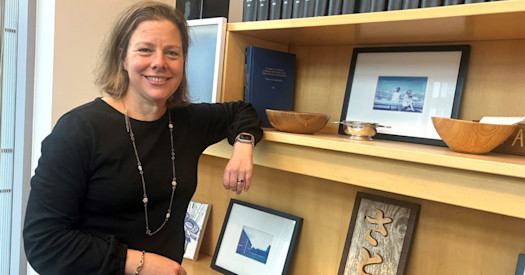 Multiple Myeloma is a cancer of the blood that begins in plasma cells, which are a vital part of the immune system. When healthy plasma cells in bone marrow acquire mutations, they can turn into cancerous cells. When these cancerous cells grow uncontrollably, they overcome healthy blood cells, decimating bone tissue and spreading cancer throughout the body.
Multiple Myeloma is a cancer of the blood that begins in plasma cells, which are a vital part of the immune system. When healthy plasma cells in bone marrow acquire mutations, they can turn into cancerous cells. When these cancerous cells grow uncontrollably, they overcome healthy blood cells, decimating bone tissue and spreading cancer throughout the body.
The disease leads to low blood counts, causing anemia. It may lead to kidney damage and, in some cases, the need for dialysis, as well as weakened immune systems and, eventually the inability to fight off infections. The disease can be controlled, but not cured.
According to the U.S. Centers for Disease Control and Prevention, in 2017, the latest year for which incidence data are available, there were 26,428 new cases of reported in the U.S.; 12,322 people died of this cancer. The five-year survival rate is approximately 54 percent. Worldwide, an estimated 156,000 cases were diagnosed in 2019, and nearly 113,000 people died, according to the annual Global Burden of Disease Study by the Institute for Health Metrics and Evaluation at the University of Washington’s School of Medicine.
Those numbers may soon be much lower because of research conducted by Drs. David G. Coffey and Pamela S. Becker funded by a $150,000 “Catalytic Collaboration Grant” in 2018 from UW Medicine’s Brotman Baty Institute for Precision Medicine.
Multiple Myeloma patients can benefit from various drug treatments, but potentially significant progress could be possible if oncologists were able to predict whether patients would respond either to the numerous available drugs or combinations of drugs.
Toward this goal, Coffey, a physician and researcher at the Fred Hutchinson Cancer Research Center, and Becker, an affiliate professor of hematology at the UW School of Medicine, conducted clinical trials to determine the feasibility of high-throughput screening (HTS) of 170 different cancer drugs. HTS enabled them to measure the ability of drugs to kill cancer cells from a patient’s tumor biopsy in a laboratory setting. Targeted next-generation sequencing was performed on DNA from all patients who underwent HTS.
Both DNA, the nucleic acid in all living cells that bears the genetic code, and RNA from which the code is translated into proteins, were studied in bone marrow plasma cells for eight patients. An additional seven patients had those cells subjected to whole exome sequencing, a technique for sequencing protein-coding regions of genes in a genome. Moreover, among patients who received assay-guided therapy, nearly all had their cancer stabilized. In some cases, drugs led to the elimination of some cancer cells.
The researchers informed the patients’ oncologists of results within an average of five days of completing the procedure, thereby giving them the opportunity to seek insurance approval and facilitate treatment before the disease had time to spread.
“It was extraordinary,” Coffey said. “To our knowledge, this is the first clinical trial to demonstrate the feasibility of HTS to guide treatment decisions for patients with Multiple Myeloma in real-time.”
In addition to using HTS as a precision medicine tool, Coffey and Becker found novel connections between the tumor genomic profile and drug sensitivity. Since it is uncommon for multiple patient tumor cells to share the same mutated genes, the genomic profile could be used as a surrogate measure for drug sensitivity.
Still, Becker cautions against calling their findings a panacea for all Multiple Myeloma patients.
“Our findings represent an important step forward,” said Becker, who is also an affiliate investigator at the Fred Hutchinson Cancer Research Center, and professor at the University of California, Irvine. “Our goal will be to continue these studies in a much larger sample size to develop the algorithms that can be used to predict the best treatment for each individual patient based on molecular analysis and drug screening.”
Their work was performed in collaboration with others at the University of Washington, the Fred Hutchinson Cancer Research Center, the Knight Cancer Institute at the Oregon Health and Science University, and Department of Medicine at the University of California, Irvine.
Findings were published in March in the paper, “High-Throughput Drug Screening and Multi-Omic Analysis to Guide Individualized Treatment for Multiple Myeloma,” in JCO Precision Psychology, a publication of the American Society of Clinical Oncology.
In addition to the BBI grant, other funding for the study came from National Cancer Institute, the Fred Hutchinson Cancer Research Center, and private donations from Ann and Kevin Harrang.


